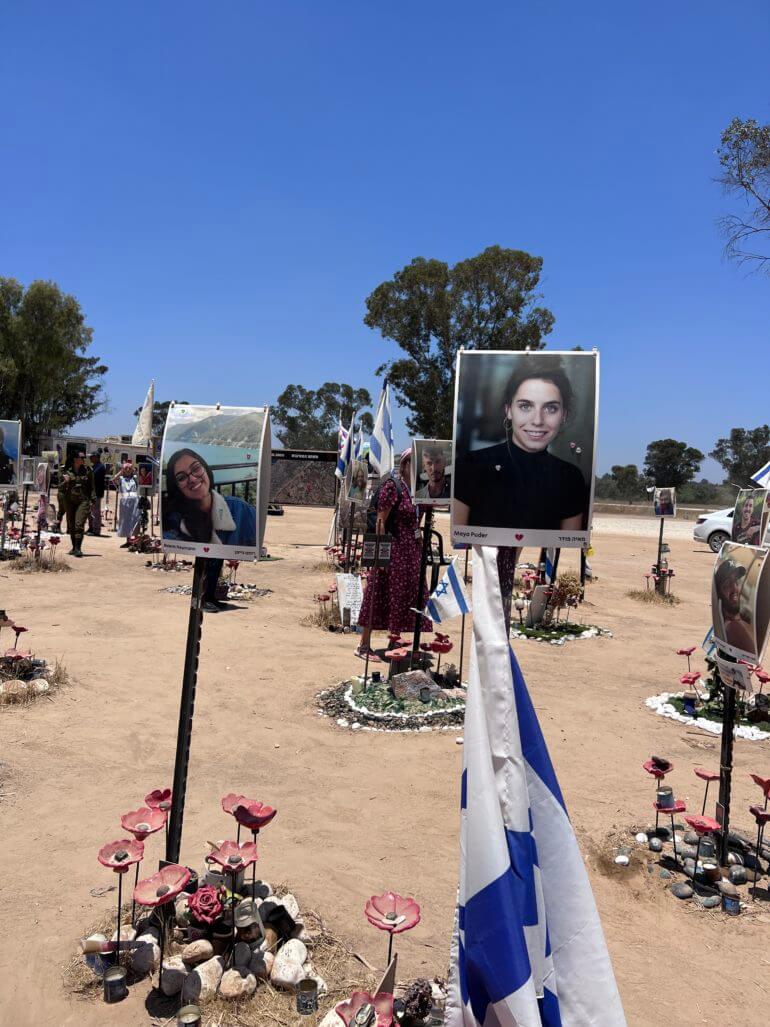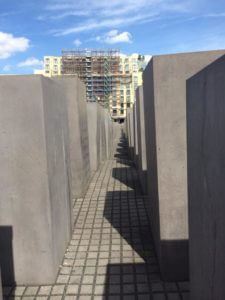
Visiting Nova: What Does Judaism Say About Visiting The Site Of A Massacre?
Dear Jew in the City,
I visited the site of the Nova Music Festival. What does Judaism say about visiting the site of a massacre? Is this kind of tourism allowed? I’m looking for an example to compare and contrast.
Thank you,
Arya
–
Dear Arya,
Thanks for your question. To be honest, I couldn’t think of a comparable example in the traditional literature.
My first thought was the eglah arufah ceremony, described in Deuteronomy chapter 21. There, the Torah describes the situation when the body of a murder victim is found between two cities. A certain ceremony is held, after which the place where the ceremony was conducted can never be planted or cultivated (see Sotah 47b). Two problems arise from using that as an example: (1) the site where the ceremony was held isn’t the place where the murder occurred and (2) eglah arufah is such a unique situation that one really can’t extrapolate any general conclusions from it.
The next thing that occurred to me was that one can’t use the ruins of a shul as a shortcut (Megillah 3:3). However, one also can’t use an active shul as a shortcut, so the prohibition is more about it being a shul (and retaining that sanctity) than the fact that it was destroyed.
Similarly, the prohibition against rebuilding the city of Jericho (Joshua 6:26) didn’t prove to be much help.
Finally, it occurred to me: why is this my problem?
That’s not as obnoxious as it sounds. I’ll explain.
Years ago, when I worked in Jewish outreach, I used to get questions like, “Can you flush the toilet on Shabbos?” Rather than just saying yes, I made a learning opportunity of it. I would ask the questioner, “Why do you think it might be prohibited?” Analyzing the situation is a much better approach than just assuming that everything is prohibited until told otherwise.
Similarly here, I turn the question back on you: what do you think might be problematic about visiting such a site?
People visit sites like Masada and Auschwitz – often on formal organized programs – and no one complains about it. (In case you think that those who have a problem with it are just being polite, I assure you that such is not the case. A number of years ago, a certain rabbi made a trip to the Sistine Chapel – which is still in use as an active church – and people were quite vocal about the attendant halachic issues.)
I did a little research to see if anyone had any halachic issues with visiting Auschwitz, and all I saw was the question of whether kohanim (who can’t enter a cemetery) could go there.
So the reality is, we go to Masada. We go to Auschwitz. I see no reason why one couldn’t go to pay their respects at the site of the Nova Music Festival.
Please note the key word: respect.
In Berlin, there’s a site called the Memorial to the Murdered Jews of Europe. It’s a 4.7-acre site consisting of a sloping field covered with 2,711 concrete slabs in a grid. I’ve been there and, if all goes well, the Jew in the City web editors will insert a picture I took here. If not, hopefully they’ll remove this note (though it’ll be pretty funny if they don’t).

Anyway, in this age of social media, visitors to the Memorial to the Murdered Jews of Europe don’t always behave properly. They pirouette on the slabs. They leap from one slab to the next. They take selfies with that horrible peace-sign-and-duck-lips pose. Basically, they disrespect what the site is supposed to represent.
An artist named Shahak Shapira took twelve such selfies posted online and superimposed the subjects in actual Holocaust photos to drive home the message of what they were doing. Amazingly, all the subjects became aware of the photos and most of them apologized. (Mission accomplished, the photos no longer appear on Shapira’s site, but you can find many of them online if you google “Yolocaust.”)
So yes, I’d say that people should feel free to visit the site of the October 7 massacre, should they be so inclined. They should only be thoughtful of what the visit is meant to represent and proceed accordingly. That’s not a halachic issue, it’s just being a human being.
Sincerely,
Rabbi Jack Abramowitz
Educational Correspondent
Follow Ask Rabbi Jack on YouTube
If you found this content meaningful and want to help further our mission through our Keter, Makom, and Tikun branches, please consider becoming a Change Maker today.







